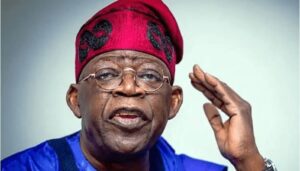President Bola Tinubu has appointed Muhammad Babangida, son of former military ruler Ibrahim Babangida, as Chairman of the Bank of Agriculture. The announcement, made Thursday by the President’s Special Adviser on Information and Strategy, Bayo Onanuga, marks a key part of a sweeping leadership reshuffle across several federal institutions.
This new appointment comes alongside eight others, signaling a determined push by the Tinubu administration to reform and reposition public agencies for better results. By placing capable individuals in strategic positions, the President aims to inject fresh energy and direction into government-owned institutions that have long struggled with inefficiency.
At 53, Muhammad Babangida brings with him strong academic and executive credentials. He holds a Bachelor’s degree in Business Administration and a Master’s degree in Public Relations and Business Communication from the European University in Montreux, Switzerland. In addition, he completed an Executive Programme on Corporate Governance at Harvard Business School in 2002.
His selection is seen by many as both a nod to legacy and a clear bet on competence. While his family name may draw attention, Babangida’s educational background and exposure to global corporate standards present him as a credible figure capable of driving reform. His corporate governance training at Harvard especially aligns with the challenges that lie ahead at the Bank of Agriculture.
The Bank of Agriculture plays a vital role in Nigeria’s economy. It provides credit and support to farmers and agribusinesses across the country. However, in recent years, the bank has faced serious criticism for its inefficiencies, weak loan recovery mechanisms, and limited reach. Appointing new leadership is part of a wider strategy to revamp the institution and restore public trust.
Muhammad Babangida is now expected to lead a transformation that prioritizes transparency, rural inclusion, and effective loan management. President Tinubu’s confidence in him suggests a belief in his ability to clean up the system and reposition the bank for impact. With global best practices in his toolkit, Babangida may bring the kind of focused leadership that the bank desperately needs.
This move also signals that Tinubu’s administration is moving beyond political patronage in its appointments. The emphasis appears to be shifting toward technical competence, executive discipline, and clear results. According to the statement by Onanuga, each appointee in this latest round was selected based on their track record, expertise, and alignment with the administration’s vision for national growth.
Critics may question the symbolic weight of Babangida’s last name, but the task before him is real. He will be judged not by his lineage but by how he leads. With agriculture remaining central to Nigeria’s economic recovery, strong leadership at the Bank of Agriculture is crucial. Farmers across the country are watching, and so are industry stakeholders.
As this appointment takes effect, expectations are high. The Bank of Agriculture must now shift from sluggish operations to real, measurable impact. If Babangida delivers, his legacy will go beyond his name — it will be built on performance.
For now, the focus shifts to action. The President has made his choice. It is time to deliver.






